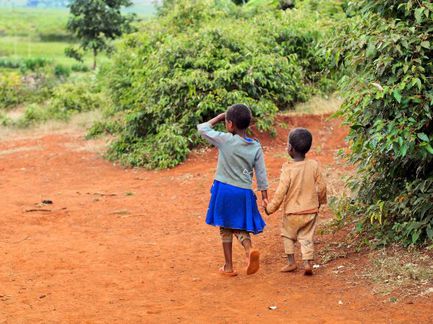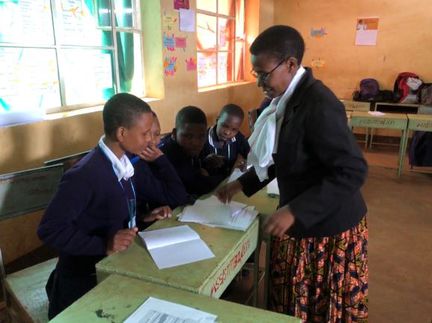Aspiring Female Leaders
I’ve heard it said that those in poverty lack motivation and aspiration, particularly for women whose societal role has been limited to homemaker. In my recent experience in Tanzania, that couldn’t be further from the truth. I had the privilege of co-leading a 3 day empowerment workshop for 20 teen girls, ages 15-18, at the Ayalagaya Secondary School in Dareda Kati. Our goal was to help open their minds to possibilities in life for them. But they were already thinking beyond their history.
Ayalagaya represents a generally poor and rural community of around 2100 households. It is largely agrarian. Historically, Tanzanian society has not valued a girl’s education.Their role was more subservient to their husbands and were expected to accept the roles of stay at home wife, mother, homemaker, garden keeper, cook, cleaner,....This began early in childhood where at 5 years old they were expected to care for younger siblings, fetch water, fetch wood, and help in the kitchen. Particularly in poor communities where funds are limited, any funds available for education have gone to the boys. This was confirmed by the girls based on interviews they conducted with their mothers, grandmothers, or aunts. These women had dreams of their own, but largely did not have the support or means to achieve their dreams. They want this to be different for their daughters. A recent survey of the Ayalagaya population supports the shift towards support for girls and women. We see parity now between the importance of educating boys and that of educating girls.

As we explored career options, it became apparent that these girls had big dreams and noble values. Nine wanted to be doctors and two wanted to be nurses to help women and children, save lives, and improve health. One wanted to be a journalist to expand information available to people. One wanted to be in tourism to connect with different kinds of people. Four aspired to be teachers to reduce ignorance and increase hope. One wanted to be a soldier to promote peace. One wanted to be a lawyer to work for equality. And one wanted to be an environmentalist to conserve the planet.

Karimu is doing what it can to support this cultural shift. Providing water points within 500m of every household in the ward has freed up time to study and attend school, time that was heretofore required for fetching water. Building bathrooms at the secondary school has included a focus on assuring that the girls can effectively and privately manage their menstrual cycles. The school must provide pads, washing facilities, and incinerators to support the girls staying in school. The 3 day empowerment workshop we led helped them to envision their opportunities and strengths, the strengths of their female idols and ancestors, and how to set goals and plan for their future. The investment is paying off. We recently heard that more girls had passed the national exam for high school entrance than boys!
As Susan Mashibe, the first female Tanzanian aircraft pilot and aviation engineer, put it “To successfully support Africa’s rise, we must support Africa’s women.” The girls we met are emboldened and supported to have big dreams and achieve them. As these young women come into adulthood, they will change their country.


